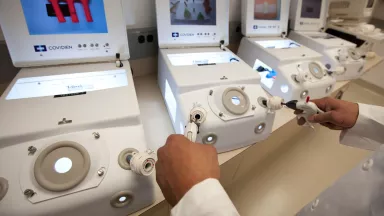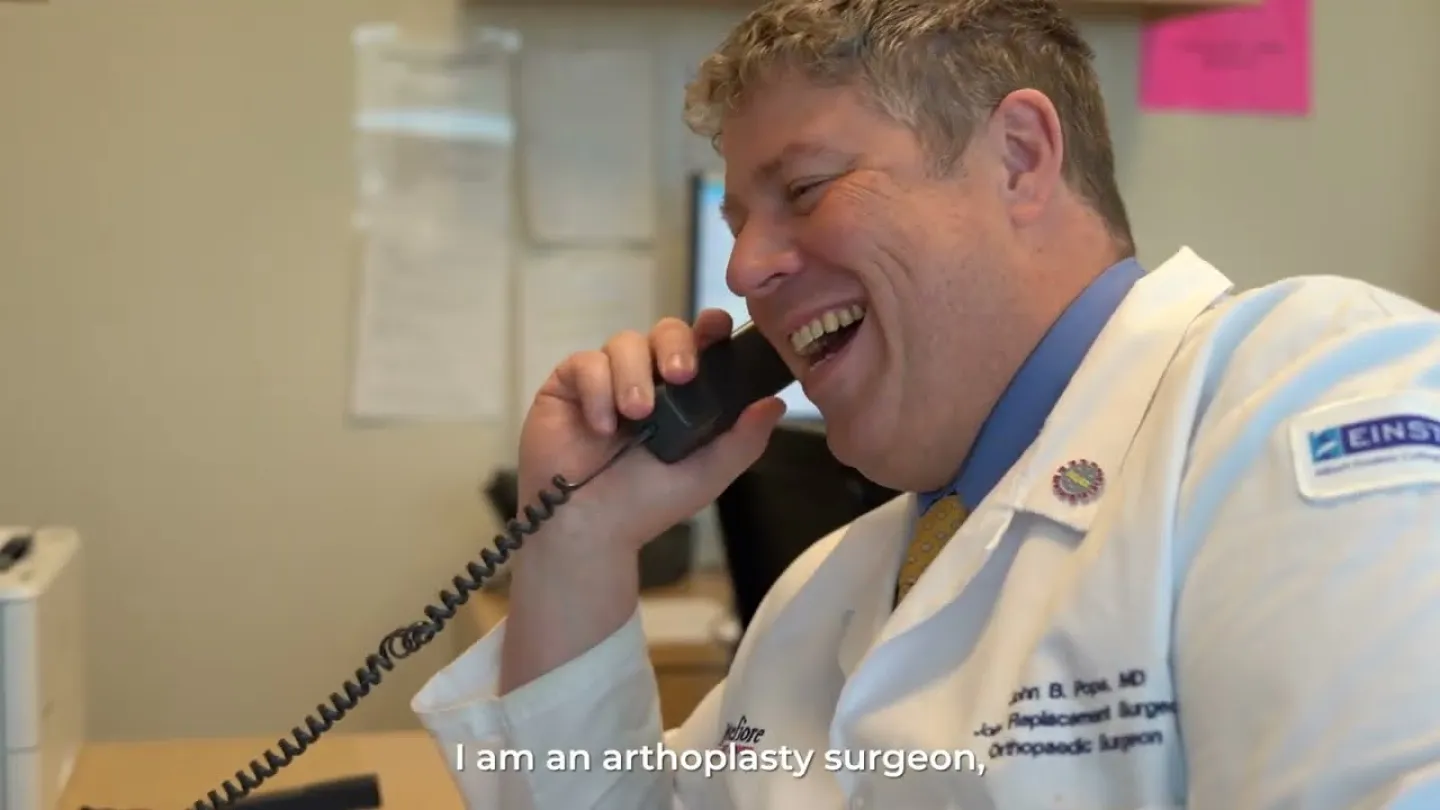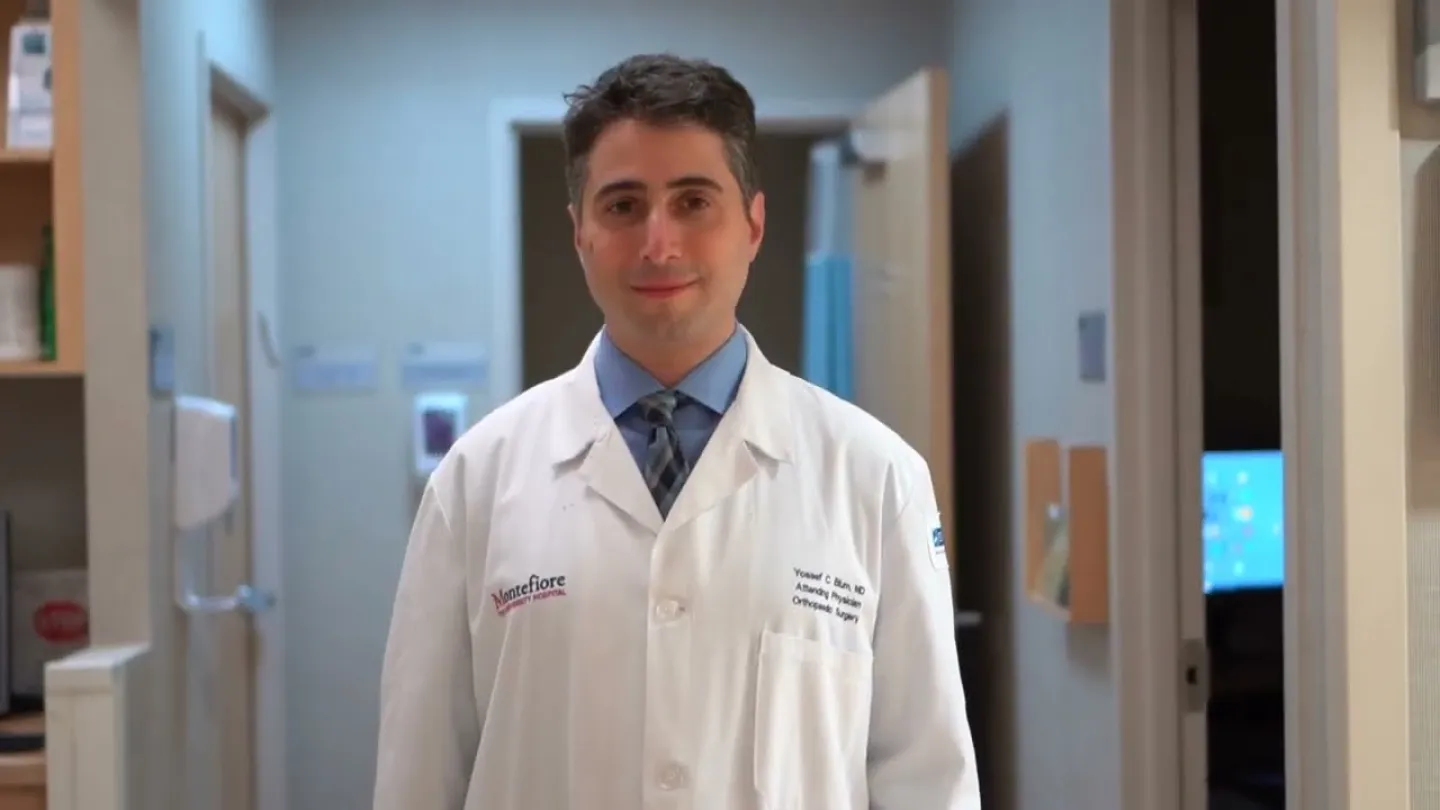Our Culture of Excellence






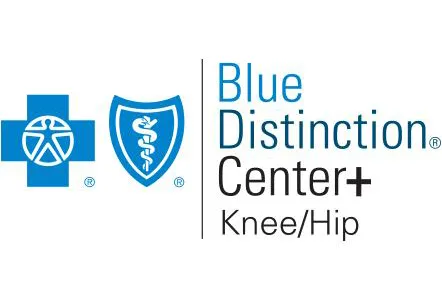
The Center for Joint Replacement Surgery at Montefiore Einstein is one of the most comprehensive of its kind in the region, known for its dedicated focus on hip and knee replacement. As part of the only center in Westchester and the Bronx to receive Advanced Certification by the Joint Commission, our team of renowned joint replacement specialists care for their patients in a state-of-the-art facility, providing personalized care. We’re ranked in the top 1% of all hospitals in the nation for Orthopedics according to U.S. News & World Report.
Our specialists are committed to the diagnosis and treatment of disorders that affect the hip and knee, with particular expertise in treating arthritis. Through the coordinated efforts of our surgeons and nonoperative physicians, we provide thorough multidisciplinary care for all our patients. We seek to achieve the best possible treatment outcomes by complementing surgical excellence with compassion, empathy and sensitivity.
The experience of our patients and their loved ones—not simply their ailments—demands our full attention. Your dedicated care team will be there to discuss your condition, answer questions, assess treatment options and develop a treatment strategy that is best for you.
Arthritis and disorders that affect the hip and knee can cause symptoms that range from mild discomfort to debilitating pain. These symptoms can interfere with normal function, mobility, employment, recreational activities and independence. We understand that these limitations can be a source of tremendous anxiety. At Montefiore Einstein, we work to ease such concerns by focusing on collaborative care that starts from the moment we meet a patient.
Using an integrated, multidisciplinary approach, we bring together surgeons and nonoperative specialists in physical medicine and rehabilitation, physical and occupational therapy, rheumatology, radiology and pain management to provide care that is thorough and comprehensive. We believe optimal outcomes are achieved through accurate diagnosis, appropriate and timely treatment, and management tailored to the individual needs of each patient.
Our status as an academic health system puts us at the forefront of our field. Together with our Albert Einstein College of Medicine, one of the highest NIH-funded institutions in the country, we are continually conducting research with the goal of discovering better treatment options for our patients. We routinely present our research findings and publish our study results in peer-reviewed publications.
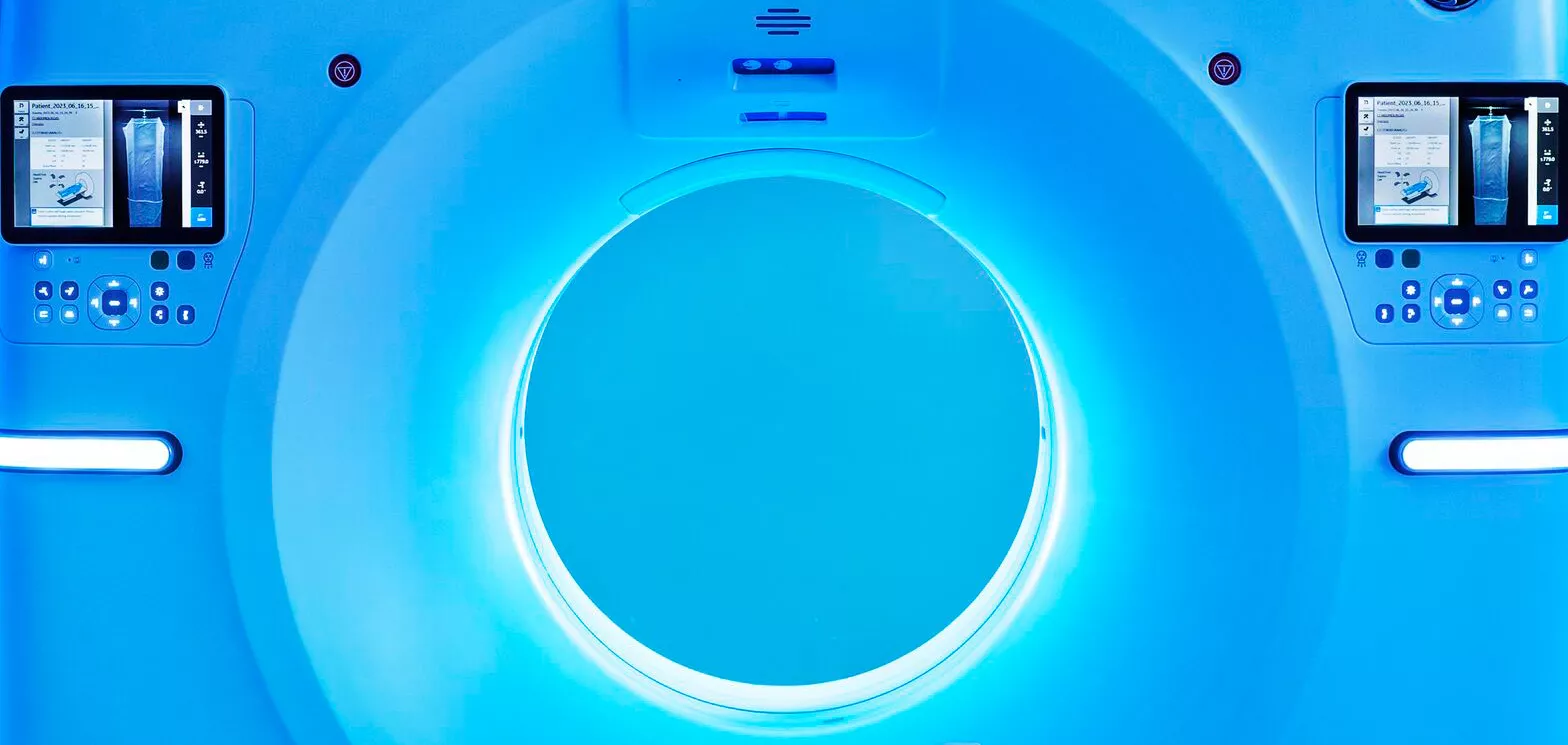
Conditions We Treat
Montefiore Einstein treats a wide spectrum of orthopedic conditions, a selection of which you will find here. In addition to these, we have experience treating many other related conditions. Please contact us to schedule a consultation to review and discuss your specific healthcare needs.
Arthritis of the hip and knee
Osteonecrosis (Avascular Necrosis)
Post-traumatic arthritis
Rheumatoid arthritis
Hip pain
Knee pain
Pain after hip replacement
Pain after knee replacement
Fractures involving hip and knee replacement (periprosthetic fractures)
Hip fractures
Problems associated with hip and knee replacement

Advanced Joint Replacement Treatments
Many joint problems can be treated with nonsurgical intervention, such as physical therapy, activity modification, bracing, weight loss, medications, or injections. In some cases, however, surgery is necessary. When surgery is needed, our specialists employ state-of-the-art, minimally invasive and blood-sparing techniques to reduce pain, improve function and minimize recovery time. A few of the most common procedures we offer are:
A hip is a ball-and-socket joint. As people age, the cartilage can wear out, resulting in arthritis. This can cause limited motion or pain, often reported as being located in the groin or buttock. If nonsurgical treatments do not provide enough pain relief, the joint can be replaced surgically.
Hip replacement surgery is one of the most successful operations ever developed. The procedure removes the arthritic portions of the hip and replaces them with a specialized prosthesis made of durable artificial materials.
In most cases, patients are walking with the help of physical therapy the day of surgery and require a hospital stay of only one to two days.
The largest joint in the body, the knee commonly develops arthritis caused by wear and tear. This can cause swelling and pain, greatly interfering with quality of life. If nonsurgical treatments do not provide enough pain relief, the joint can be replaced surgically.
Knee replacement surgery is the most common joint replacement surgery. The procedure involves first removing the arthritic end of the femur (thigh bone), the arthritic end of the tibia (shin bone) and the arthritic side of patella (kneecap). The removed bones are then replaced with highly specialized materials.
In most cases, patients are walking with the help of physical therapy the day of surgery and require a hospital stay of only two to three days.
Hip and knee replacements typically last from 15 to 20 years. These artificial joints develop wear and tear over the course of time and may eventually require a revision. This procedure involves removing the existing implants and placing new components in their place.
Although this procedure is more involved than a primary joint replacement, techniques and strategies exist to achieve optimal outcomes in motion, pain relief and stability for the replaced joint.
In most cases, patients are walking with the help of physical therapy shortly after surgery and require a hospital stay of approximately three days.
The knee is divided into three different compartments, (the end of the thigh bone, the end of the shin bone and the kneecap). In some cases, only one of these compartments has worn out. In these instances, if nonsurgical treatment no longer provides relief, a partial knee replacement might be recommended.
In partial knee replacement surgery, only one of the three compartments is reconstructed. This procedure spares normal, well-functioning tissue and is often a smaller surgery than a total knee replacement, helping make recovery time shorter.
In most cases, patients are walking with the help of physical therapy the day of surgery and require a hospital stay of only one to two days.
Some patients are living with either bone deficiency or unique anatomic challenges. In these cases, a customized implant, tailored to that individual’s needs, may prove the best approach for reconstructing the joint. Customized hip or knee replacement surgery can also potentially offer increased bone preservation and reduce a patient’s time spent in surgery.
These surgical procedures require extensive preoperative consideration and planning. They employ the use of cutting-edge technologies, including 3D printing, customized cutting guides and computer modeling platforms. Our surgeons have extensive expertise in using customized implants and can determine whether this approach is appropriate on a case-by-case basis.
Your Team of World-Renowned Specialists
Featured Videos
Joint Replacement Highlights
Patient Resources
Our goal is to improve the quality of life for our patients and return you to the highest level of functionality as quickly as possible. Providing a good patient experience requires planning and preparation. We keep you informed every step of the way to give you an understanding of what to expect on the journey, from planning to surgery through recovery.
Physician Referrals
Montefiore Einstein embraces a collaborative approach.
If you have a patient who could benefit from our services, please reach out.
718-920-2060
Schedule a Visit
Have a general question or concern?
We’re available to help you by phone or email.
• 718-920-2060 • orthofeedback@montefiore.org




